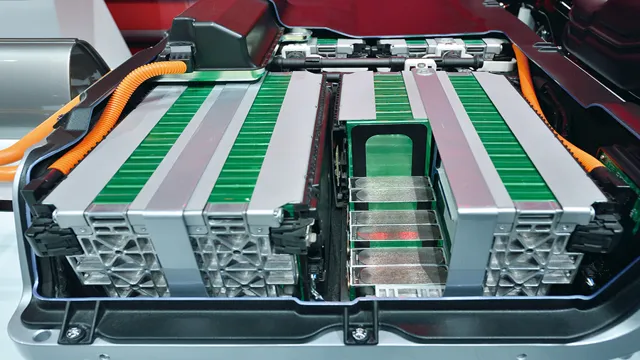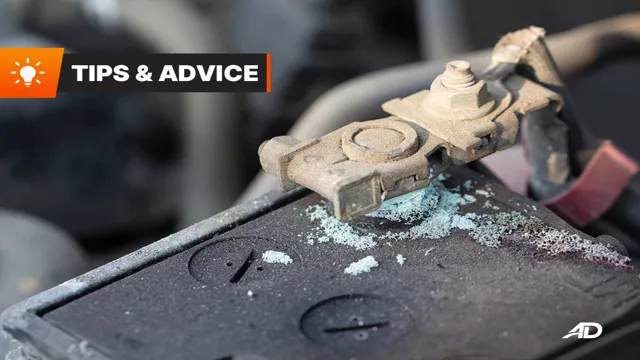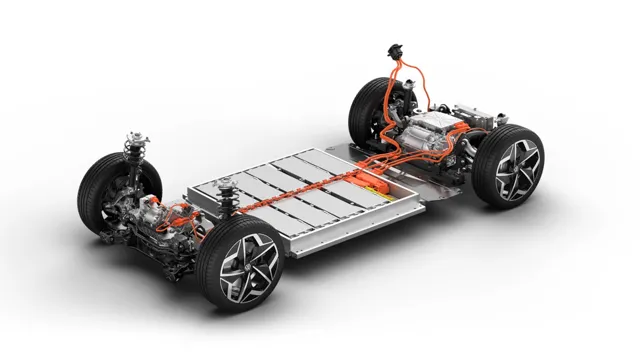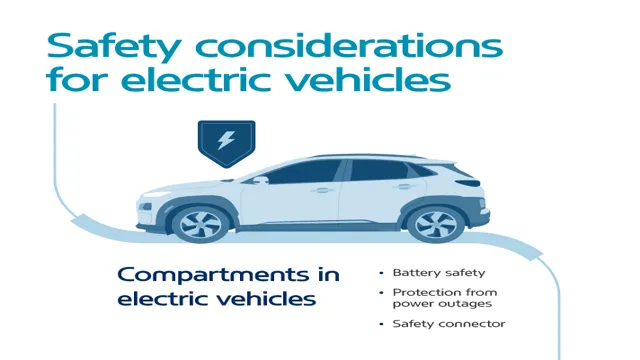Unlocking the Truth: How Long Do Electric Car Batteries Really Last?
Electric cars are rapidly gaining popularity among environmentally-conscious individuals who want to reduce their carbon footprint and cut down on gas expenses. However, one of the most common concerns about electric cars is battery life expectancy. How long will the batteries last? Will they need to be replaced often, and if so, how expensive is it to do so? In this comprehensive guide, we will delve into all aspects of electric car battery life expectancy, answering these and other questions that may arise.
We will explore the factors that affect battery life, dispel common myths, and offer practical tips to help you extend the life of your electric car battery. Whether you’re a seasoned electric car owner or considering making the switch, this guide is sure to provide valuable information you won’t want to miss.
What Determines An Electric Car Battery’s Life?
When it comes to electric car batteries, many factors can determine their lifespan. One of the most important factors is the quality of the battery itself. Different battery chemistries have different lifetimes, and some are more durable than others.
Other important factors include the charging and discharging patterns, the temperature the battery is exposed to, and the general amount of wear and tear that the battery undergoes over time. Additionally, regular maintenance can help prolong an electric car battery’s lifespan, such as ensuring that the battery’s charge level stays within a safe range and avoiding overcharging or deep discharging. Ultimately, while the lifespan of an electric car battery will depend on a variety of factors, taking proper care of the battery and investing in a quality electric car can help you get the most out of your vehicle and its battery in the long run.
Chemical Composition of Battery Cells
When it comes to the lifespan of an electric car battery, there are several factors to consider. One of the crucial aspects is the chemical composition of the battery cells. The type and quality of the materials used in the battery can significantly impact its performance, durability, and overall lifespan.
Lithium-ion batteries, the most common type of battery in electric vehicles, typically use a combination of cathode, anode, electrolyte, and separator materials. The quality and purity of these materials can vary, affecting the battery’s ability to hold a charge and operate efficiently over time. Additionally, the manufacturing process can also impact the battery’s overall quality and lifespan.
Battery manufacturers must strike a balance between affordability and quality to ensure the battery can perform optimally throughout its expected lifespan. As a result, proper material selection and manufacturing processes play a crucial role in the overall performance and lifespan of electric car batteries.
Powertrain and Battery Cooling
When it comes to electric cars, a big concern for drivers is the battery’s longevity. There are many factors that determine an electric car battery’s lifespan, but one of the most important is powertrain and battery cooling. Efficient cooling systems help prevent the battery from overheating, which can cause damage and reduce the overall lifespan.
Batteries that are kept at a steady temperature tend to last longer, so manufacturers put a lot of effort into designing cooling systems that work well. These systems can range from liquid cooling to air cooling, depending on the car model. So, it’s important to choose an electric car with a reliable cooling system to ensure that the battery has a long and healthy life.
Driving Habits and Conditions
One of the biggest factors that determine the life of an electric car battery is driving habits and conditions. Aggressive driving, excessive acceleration, and constant high-speed driving can all shorten the lifespan of an electric car battery. On the other hand, gentle driving habits, such as slow and steady acceleration, and maintaining a consistent speed can help extend the battery’s life.
Weather conditions can also have an impact on the battery’s life, with extreme heat or cold degrading its capacity to hold a charge. It’s important for electric car owners to be mindful of their driving habits and to take steps to care for their batteries properly. With proper care and attention, you can help ensure that your electric car battery continues to provide reliable power for years to come.
How Long Do Electric Car Batteries Last on Average?
Electric cars have become increasingly popular in recent years due to their affordability, eco-friendliness, and performance capabilities. One question that often arises is how long electric car batteries last on average. Well, the longevity of an electric car battery depends on several factors, including the model, usage, and the climate in which it’s used.
In general, electric car batteries can last anywhere from 8 to 10 years with proper maintenance, although some high-end models may have a longer lifespan. It’s important to note that the battery’s range may decrease over time, which means a vehicle’s driving distance on a single charge may decrease over time as well. However, regular maintenance can help extend the battery’s life, including avoiding extreme temperatures, charging at an appropriate voltage, and performing regular battery health checks.
Ultimately, the lifespan of an electric car battery can vary, but proper care can help ensure it lasts as long as possible.
Data on Battery Life Expectancy by Model
Electric car battery life varies depending on the make, model, and usage. On average, electric car batteries can last anywhere from 100,000 to 200,000 miles before needing to be replaced. However, some models have proven to have longer-lasting batteries, while others may require a battery replacement sooner.
It’s essential to keep in mind that factors such as climate, driving conditions, and charging patterns can affect battery life. For example, extremely hot or cold temperatures can decrease battery capacity, while frequent fast-charging sessions can strain the battery. Ultimately, taking good care of your electric car battery can yield better performance and longer life expectancy.
It’s also worth noting that some manufacturers offer extended warranties for battery replacements to alleviate concerns about battery life expectancy.
Factors That Affect Battery Health
Electric car batteries last, on average, somewhere between 8 to 12 years before needing a replacement. However, several factors can affect the battery’s health, ultimately shortening or extending its lifespan. For instance, frequent fast charging can degrade the battery, as well as exposing it to high temperatures or extremely low ones.
Additionally, driving habits, such as constant use of air conditioning or excessive acceleration, can also impact the battery’s durability. Conversely, proper maintenance, such as keeping the battery charged between 20% to 80% and avoiding long periods of inactivity, can help extend its lifespan. Ultimately, the longevity of an electric car battery depends on various factors, and it’s crucial to consider each of them to ensure the vehicle’s optimal performance and reliability.
How to Maintain and Extend the Life of Your Electric Car Battery?
Electric car batteries can last for many years if they are well-maintained. One way to extend the life of your electric car battery is to avoid high-temperature environments whenever possible. Extreme heat can damage the battery and significantly reduce its lifespan.
You should also avoid letting the battery run completely down before recharging it. This can cause irreparable damage to the battery’s cells. Additionally, keeping your car battery clean and free from dirt and dust can help to prevent damage and improve its performance.
Regularly inspecting and maintaining the battery’s connections can also help to ensure that it continues to function properly. By following these simple tips, you can help extend the life of your electric car battery, making it a more environmentally friendly and cost-effective option for your transportation needs.
Charging Etiquette
Electric car owners have to learn a new etiquette when it comes to charging their vehicles. The key to extending the life of an electric car battery is to avoid charging it all the way to 100% or letting it drain completely. Instead, try to charge your car up to 80% and avoid letting the battery level drop below 20%.
This “sweet spot” will help to prolong the life of your battery. Additionally, if you can, try to charge your car during off-peak hours, when electricity rates are lower. Do your part by moving your car once it’s finished charging to make way for others in need.
Remember, charging an electric car takes longer than filling up a gas tank, so it’s important to be considerate of other drivers waiting in line. By following these simple guidelines, you can make sure that your electric car’s battery lasts as long as possible, and you’re doing your part to be a responsible member of the electric driving community.
Battery Maintenance Tips
Electric car batteries are not cheap, so it’s important to take proper care of them to extend their life and save money in the long run. One of the simplest ways to maintain your electric car battery is to keep it charged. When the battery level drops below 20%, charging it immediately is the best option.
Moreover, keep an eye on the charging levels and avoid letting it drain completely or overcharging it. Another way to ensure your battery remains in good condition is to avoid exposing it to extreme temperatures, both cold and hot. Exposure to extreme temperatures can cause irreversible damage to the battery.
Regularly checking the battery’s coolant level can also help maintain its performance and prevent overheating. Lastly, perform periodic maintenance and software updates as recommended by the manufacturer. By following these battery maintenance tips, you can ensure that your electric car battery provides optimal performance and lasts for years to come.
Conclusion and Final Thoughts
In conclusion, an electric car battery’s lifespan is like a fine wine – it all depends on how you store and maintain it. With proper care and attention, an electric car battery can last for years and take you on countless emissions-free adventures. So, treat your battery like a prized possession and watch it age like a fine vintage car.
“
FAQs
How long does an electric car battery last?
Electric car battery life varies depending on the make and model of the vehicle. Generally, a fully charged battery will last between 100-300 miles depending on several factors such as driving conditions and vehicle usage.
Can the battery of an electric car be recharged while driving?
Some electric car models come equipped with regenerative braking technology that allows for the battery to be charged while driving. This technology converts kinetic energy into electrical energy, which can then be stored in the car’s battery.
How long does it take to charge an electric car battery?
The time it takes to charge an electric car battery depends on several factors such as the type of charger being used and the size of the car’s battery. Typically, it can take anywhere from 30 minutes to several hours to fully charge an electric car.
Do extreme temperatures affect the life of an electric car battery?
Yes, extreme temperatures can affect the life of an electric car battery. High temperatures can shorten the battery’s life, while cold temperatures can affect the battery’s performance. It is recommended to park the car in a garage or shaded area during extreme temperatures to help protect the battery.






